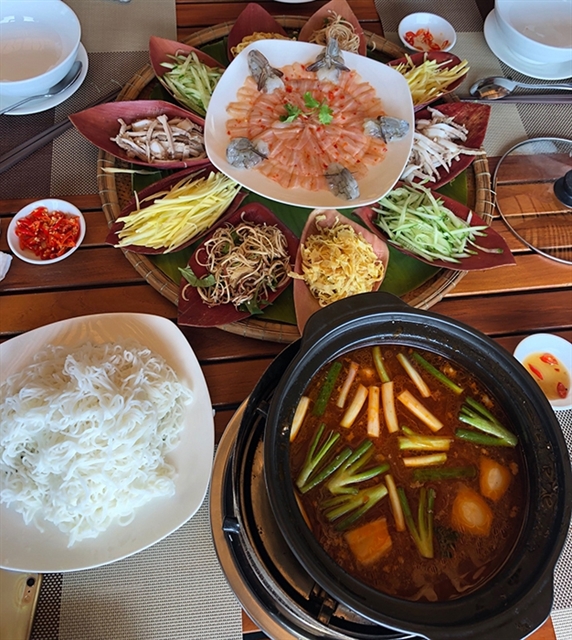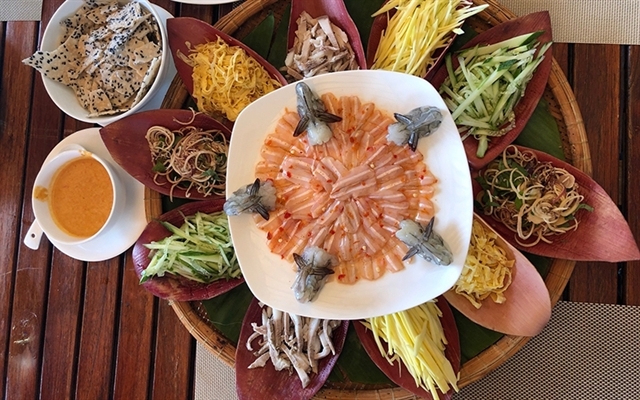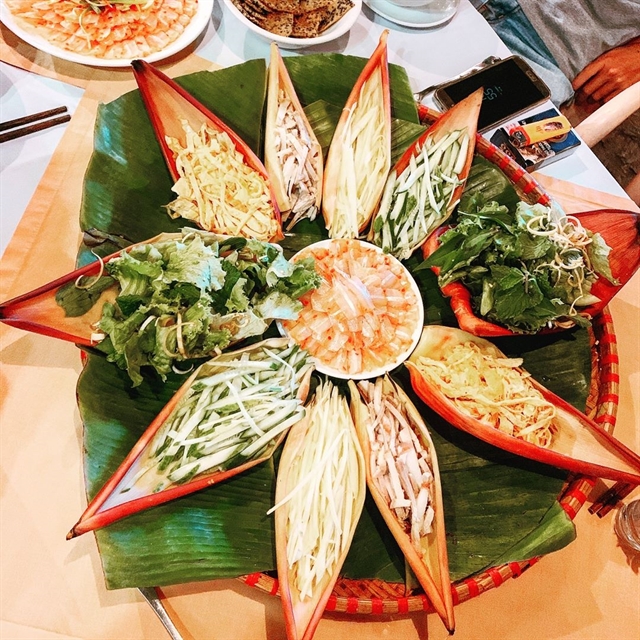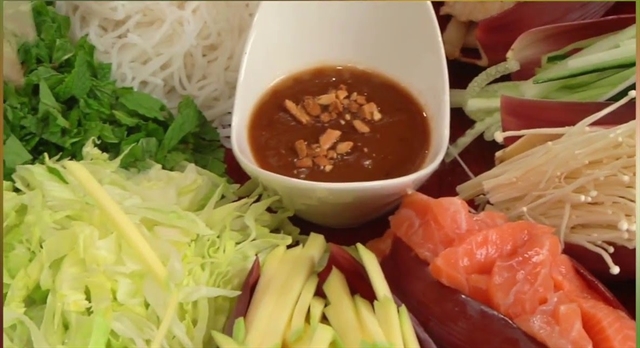[ad_1]
Duy An
Seafood hotpot of Bình Thuận is among the 100 tastiest Vietnamese dishes chosen by the Việt Nam Record Association (Vietkings) for 2020-21, and for good reason.
During a working trip to the south-central province last week, my local partner Nguyễn Thu Hiền invited me to eat seafood hotpot locally called lẩu thả.
“Through the dish, you can discover our beautiful land and enjoy its flavours to understand more about the province’s cuisine,” Hiền said.
“The dish is a perfect combination of ingredients that will bring energy for the body and good health,” she added.

Hiền said the dish’s birthplace is Mũi Né Beach in Phan Thiết City, which is surrounded by yellow sands along the green sea.
We arrived at a shop near the beach very early at 7am but it was already full of diners. The shop owner named Trần Thị Thanh said visitors to Phan Thiết loved trying the dish.
After waiting for a while we were served the hotpot. As a hotpot connoisseur, I quickly realised the lẩu thả was unlike anything I had tried in Hà Nội. The broth is much tasty and I enjoyed the savoury and crispy deep herring and special dipping sauce.

Thanh said cooking the hotpot is rather complex, particularly the deep herring (locally known as mai fish), the main ingredient of the dish.
“The fish is special seafood of the Khánh Hòa and Bình Thuận sea areas. The fish for lẩu thả should be fresh or still alive,” Thanh said, noting that she often ordered fish fresh off the boat.
The fish should be scaled and filleted, she said.
“This process is rather difficult because the fish is small. It needs skills to ensure that there’s no bone left in the fillet,” Thanh said, adding that the fillet should be soaked with lime juice, salt, garlic and chilli for it to be firm and crispy.

Other ingredients include banana flower cut into threads, cucumber, young mango cut into pieces, boiled pork belly, fried eggs cut into threads and rice crepes.
The ingredients for the broth include shrimp, pork bone, sea crab legs, onion, tomato, and broth mix, while the dipping sauce is being made from ground nuts, a large banana and salt. All these components are ground to ensure the sauce is greasy, sweet and salty instead of using fish sauce like for other dishes, Thanh said.

She said decorating the dish also needs skills.
“I often use covers of the banana flowers as a plate to contain these ingredients to place around the hotpot,” she said.
Thanh told me that there are two ways to eat the dish. The first is to use a rice crepe to wrap the deep herring with other ingredients and dip it in the sauce, while the second way is to put shrimp into the hotpot and put other ingredients into a big bowl and then souse the boiled broth in.
Hiền told me she likes to dip her herring in the hotpot for several seconds to ensure the fish is done to a turn, savoury, and crispy.
“If you dip the fish in the hotpot for too long, it will crumble,” she said.
Nguyễn Văn Khoa, chairman of the Binh Thuận Tourism Association, said lẩu thả originated from a Mũi Né fishing village but has been spread to other areas for the last few decades since tourism strongly developed.
“Since then the dish has become a speciality of Bình Thuận. It is always presented at local trade fairs and food festivals where gourmets are interested to order it,” he said. VNS
[ad_2]
Source link